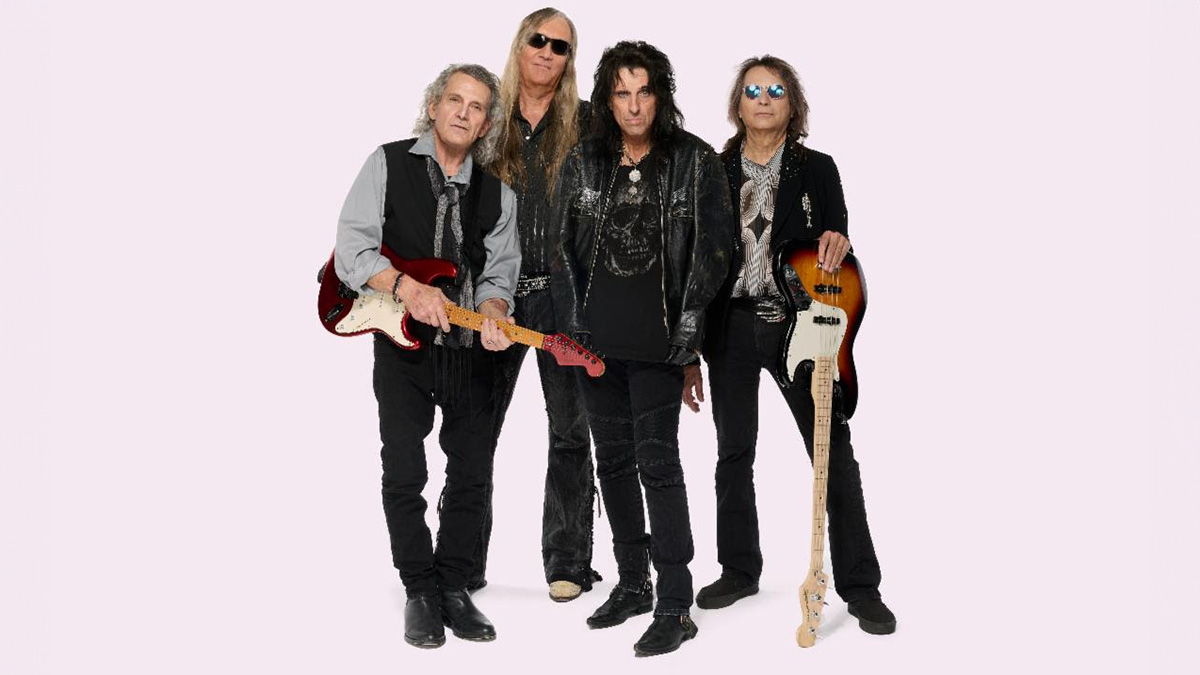When Rivers Meet talk cigar-box electrics, playing blues on mandolin, and ditching Americana for gloves-off rock ’n’ roll
Aaron and Grace Bond's debut, We Fly Free, is one of the most soulful roots-rock albums you'll hear anywhere. They tell us how they put their galvanic sound together
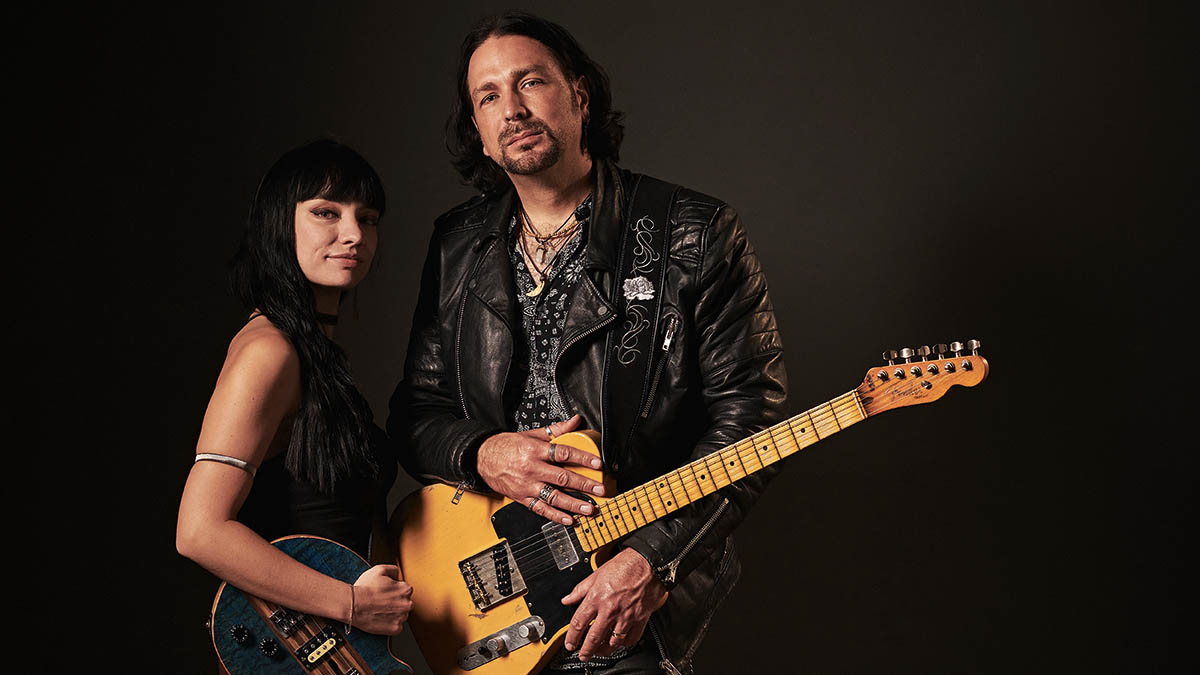
In a world where military-grade hype seems to power most of the music industry, it’s refreshing to witness a record spring almost out of nowhere because it’s such a strong, feral slice of rock ’n’ roll that you’re compelled to pay attention.
Such was We Fly Free, the debut album by East Anglian husband-and-wife duo Aaron and Grace Bond. Despite being launched in the Covid-blighted year of 2020, the record lit up the lockdown airwaves like a stray firework and saw the pair take four British Blues Awards in the same year, the first album to do so in the annals of the event.
Like a vintage motorbike, the band’s viscerally emotive sound doesn’t have a whole lot of moving parts: Aaron’s riffs are the engine that sends them roaring down the road, while Grace’s vocals are the volatile spirit that fuels the excitement.
With a new album, entitled Saving Grace, just launched, When Rivers Meet have been on the road promoting their new record, but they pulled over to join us for coffee at Guitarist’s studio and explain why making the shift from acoustic Americana to gutsy rock ’n’ roll ended 10 years of soul-searching and transformed their musical fortunes almost overnight.
They also opened a few flight cases to show us the tools of their trade, from Keef-inspired custom single-cuts to raw and rootsy cigar-box electrics. Just don’t trash-talk Elvis in front of them, y’hear…
How did you get started making music together?
Aaron Bond: “We first met 17 years ago, in the pub…”
Get The Pick Newsletter
All the latest guitar news, interviews, lessons, reviews, deals and more, direct to your inbox!
Grace Bond: “Yes, because of our mates…”
Aaron: “And we got chatting straight away.”
Grace: “Our first conversation was actually about Elvis.”
Aaron: “Yes, because it was on the jukebox at the time.”
Grace: “Somebody was dissing Elvis and we were like, ‘Hang on a minute, no.’ So we united on that [laughs].”
Aaron: “Then we just got chatting about music and gradually sort of got together. We were in different projects ourselves: I was in a couple of rock bands and Grace was in all sorts of different bands.”
Grace: “Everything, yes, Meatloaf tribute bands…”
Aaron: “Country bands and all sorts. Then it took quite a long time before we decided to do anything together.”
Grace: “It didn’t feel that obvious and, also, when we did start playing together, Aaron was playing acoustic guitar and I was playing [unplugged] mandolin, so it was much more like Americana. It took us a while to get into a groove, especially with writing together.
“We could always see the potential there, but it took nearly 10 years for us to find it. We were playing the Americana stuff and I remember saying, ‘Do you know what? I’m not actually loving doing this any more, something’s not quite right.’ We’d done other projects, we were doing session work and covers stuff, and we were actually getting our thrill out of doing that and not our own stuff.”
What sparked the change to the roots-rock music you perform now?
Grace: “I actually remember the moment we decided to take a different direction. We were at a Guns N’ Roses concert. At the time, we were going to rock concerts and then going home and playing something completely different. So, anyway, we were at this concert and I’d had a couple of beers and then I stood up and was going, ‘This is what we need to do: we should be playing rock music and blues.’ So, the next day, Aaron went and got his Les Paul…”
Aaron: “We loved The Civil Wars. They were amazing, and because of the vocal harmonies and things like that… oh, wow, they were something else. So we thought at the time, because I was playing acoustic and Grace had an acoustic violin and mandolin, ‘Well, this must be the route we need to go down because we can’t possibly do blues-rock just as a duo.’
“People kept saying that to us: ‘You need a band, you can’t do it as a duo.’ We believed it to a certain extent, didn’t we? Then, like I say, when we went to see Guns N’ Roses, it all changed and we said, ‘No, we will do this.’”
How did you know you’d made the right decision?
Grace: “We were at the Dereham Blues Festival in Norfolk. We’d been doing what we felt was some good-quality stuff [from the band’s earlier Americana phase], but we never got any real reaction. So we did some new stuff we’d been writing, thinking, ‘Let’s go see how this goes,’ and it was like, ‘Oh my God…’”
Aaron: “When we first started playing there was nobody there. And within two songs the whole place was absolutely packed. We thought, ‘Wow,’ you know. It was crazy.”
Grace: “Ever since, we’ve said whenever we write a song, we’ve got to love it because people know. If you don’t [love it yourself], the audience knows…”
Aaron: “We’re quite ruthless when we write. When we’re writing a song, if we just think, ‘Well, it’s okay…’ then we just scrap it and move on to something else because we’ve got to love it from the get-go.”
Grace: “We’ve got to be like, ‘This is the only song I want to play now – this is the one.’”
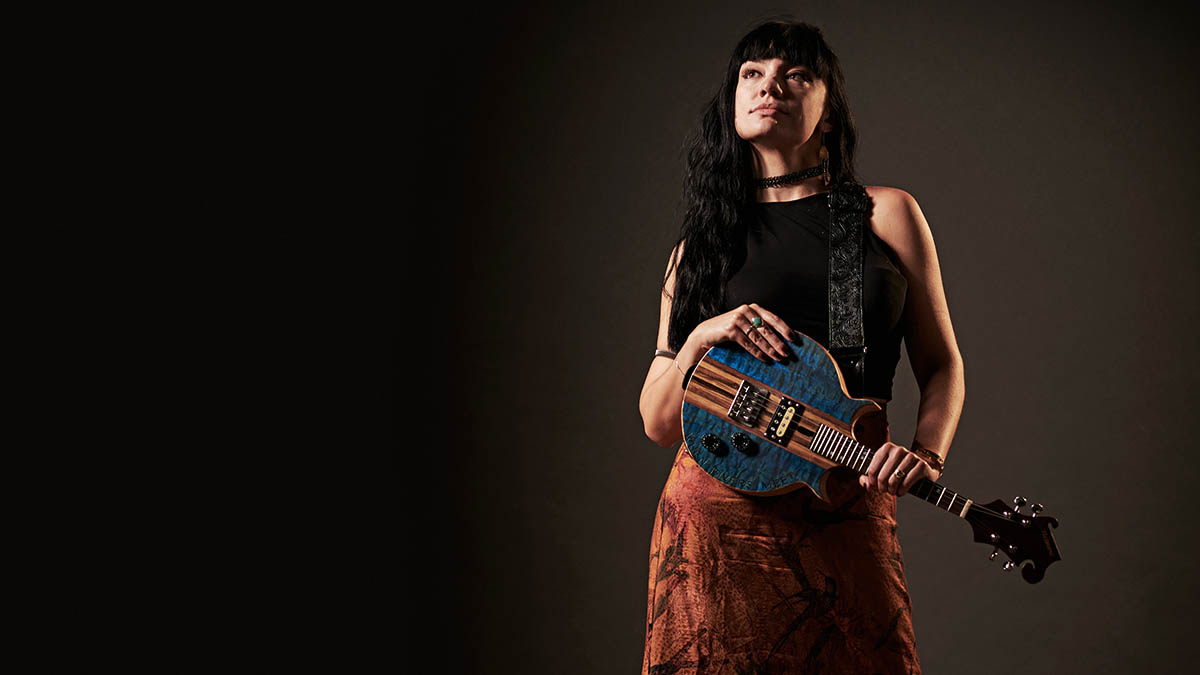
What guitars and other gear have you been using to sculpt your current sound?
Aaron: “Well, most of the new album is ‘Scotchy’, my Telecaster[-inspired solidbody] and also a 335 guitar, plus my Gibson Les Paul. Obviously, there’s my cigar-box guitar, as well. That’s basically what I use, but we kind of went through an old 70s Vox amp on most of the songs, plus a couple with the Marshall. Beyond that it was just really old reverb, a few delay pedals and things like that.”
Grace: “We used proper spring-reverb boxes. Our producer Adam [Bowers] gets very much into the detail with the sounds…”
Aaron: “He gets very frustrated with me! He’d say, ‘What? You’ve still got that crappy old Blues Driver?’ I’m like, ‘I know… I just like the sound of it.’”
Grace: “We’ve just bought another Marshall amp; when we’re recording, I put my instruments through a valve amp as well. But it’s funny, Aaron gravitates to a very trebly sound. It’s always pretty toppy.”
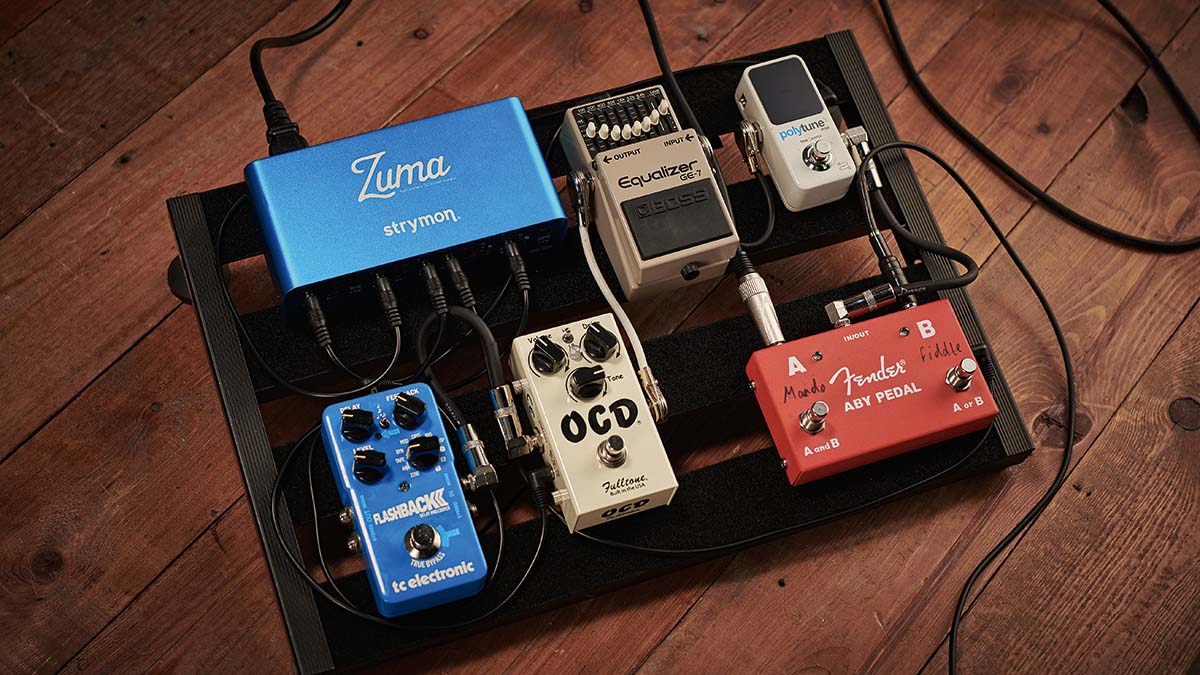
Tell us about your T-style electric, Aaron.
Aaron: “It was custom made for me by Gulfcaster Guitars in Florida. Izzy [Buholzer] went through the whole thing with me via Zoom and said, ‘What do you want?’ I was like, ‘Well, I like this and I like that,’ and he guided me through the whole build – he’s very techy.
“He was like, ‘I think you need this, this, that and the other to get your sounds,’ and I was like, ‘Oh, great!’ I love the Keith Richards [Micawber] guitar, you see, so it’s very much like his. Not quite the same but pretty close.”
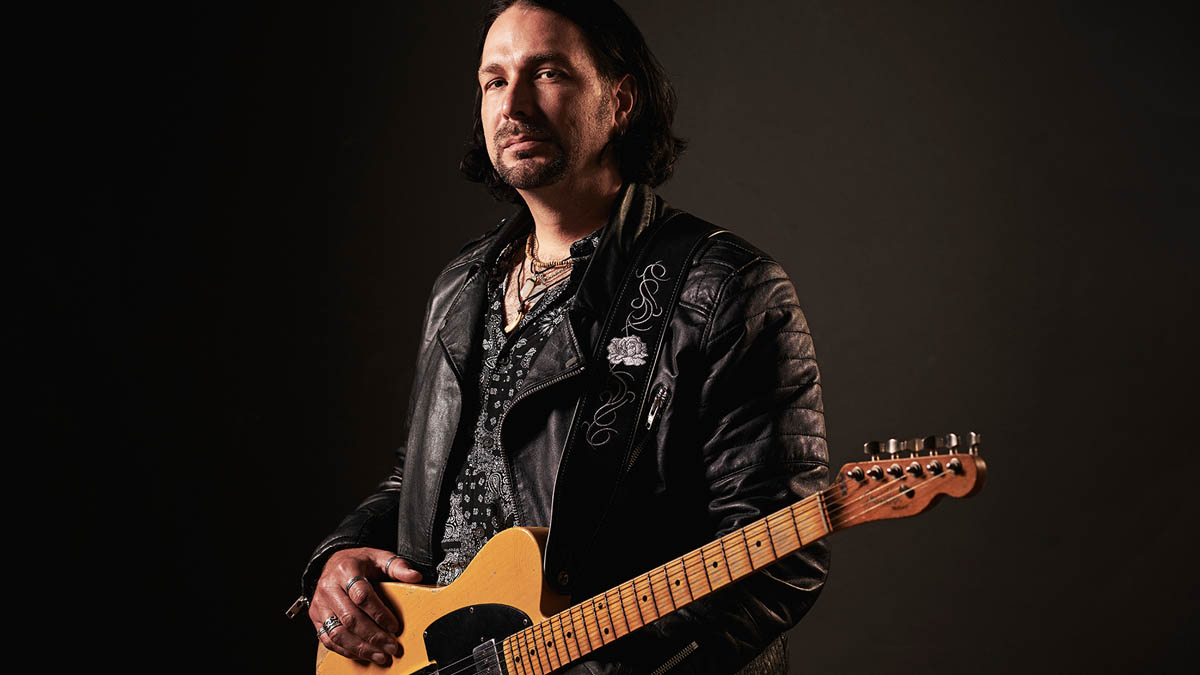
Tell us about your mandolins, Grace – was it easy to find a model that worked for plugged-in rock ’n’ roll?
Grace: “Before I got those two, I was playing resonator mandolin, which was just a complete nightmare with feedback, just terrible. I loved it, but it was a nightmare. So I found Belmuse Mandolins and we went there and he had the ‘Iceman’-style one, and that’s fantastic because I play a lot of slide mandolin. So the eight-string is great for that because you just get the proper twang – I have a little bit of overdrive and a little bit of delay.
We’ve got quite a full sound, even when there are just two of us, because of the mandolin
Grace Bond
“I’ve also got the four-string. I never thought I would want a four-string mandolin because it feels more like a ukulele or something, you know? But as soon as I started playing it, it’s so nice to be able to bend the notes and you can really play lead on it… just to be able to bend the strings makes all the difference.
“So that one was custom made for me – it’s just got a humbucker on it. It works especially well with a little bit of overdrive, so it competes more with the electric guitar because otherwise it just feels too thin.
“When we’re doing duo gigs, it’s nice that we’ve got full-frequency coverage, in a way. So you’ve got the high tones of the mandolin, while Aaron plays a lot more bass-y stuff, and then there’s his kick [percussion] as well. So we’ve got quite a full sound, even when there are just two of us, because of the mandolin.”
You mentioned that Aaron provides the rhythmic pulse for the music with his feet. Do you use a piezo ‘stomp box’ to amplify that?
Aaron: “No. I tried some of those things and I just couldn’t get on with them at all, so I literally have a kick drum behind me with a physical pedal. We like the organic look as well as the sound and whatever else. Everything we do is, like.. .real, you know?”
Grace: “We did try the blocks, though…”
Aaron: “Yes, but it gave me shin splints [laughs].”
Grace: “We kind of see our music as [being built from] a few simple elements and that’s kind of it. There’s not a lot of complexity because we like just two or three good elements, like a strong riff, a strong vocal line…”
Aaron: “A good beat…”
Grace: “There aren’t any guitar solos because Aaron’s purely rhythm, which has kind of given us a different sound, almost by accident.”
Aaron: “Yes, our biggest influences are Led Zeppelin, Free, Bad Company and people like that. When you listen to their music, there’s a lot of space. We love that. It’s the same with the old blues artists like John Lee Hooker. I mean, for me, John Lee Hooker is my all-time favourite: just riff, riff, riff. That’s what gets me…”
Grace: “Yes, just lock in and you’re happy. That’s why the cigar box works so well.”
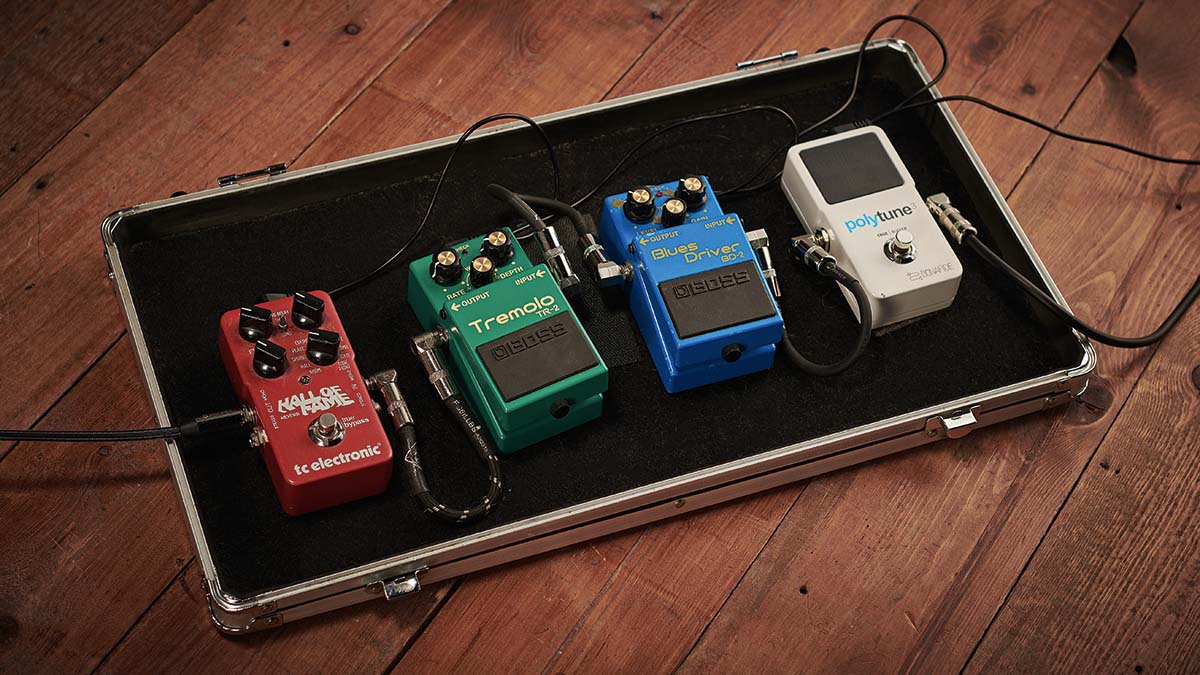
Who built the cigar-box electric?
Aaron: “A company called Dust N Bones in Cumbria. He made that for me and sent it down. I just started playing it – I love it. The action is so high on it, it’s great. It’s non-fretted and it’s just beautiful for playing slide. The sound you can get out of it is just phenomenal.”
What tunings do you use for slide?
Aaron: “I play loads of different tunings. I do play in standard, but also drop D and DADGAD. I play in [open] G, E, C. Hence, I have a lot of guitars because it’s just quicker to change them – I pick up another guitar, rather than try to retune them…”
Grace: “This is what he says, but it’s just because he wants more guitars!”
Aaron: “No… but I do like a lot of guitars [laughs].”
- We Fly Free is out now.
Jamie Dickson is Editor-in-Chief of Guitarist magazine, Britain's best-selling and longest-running monthly for guitar players. He started his career at the Daily Telegraph in London, where his first assignment was interviewing blue-eyed soul legend Robert Palmer, going on to become a full-time author on music, writing for benchmark references such as 1001 Albums You Must Hear Before You Die and Dorling Kindersley's How To Play Guitar Step By Step. He joined Guitarist in 2011 and since then it has been his privilege to interview everyone from B.B. King to St. Vincent for Guitarist's readers, while sharing insights into scores of historic guitars, from Rory Gallagher's '61 Strat to the first Martin D-28 ever made.
“I didn’t think anybody would believe I got it from George Harrison. I figured they’d call me a liar”: Vintage guitar guru Norman Harris names the 5 most memorable guitars that have come through Norman's Rare Guitars
“What blew me away was that everyone wanted the curly maple top. People were calling, saying, ‘I’ve got to have the bird inlays’”: Paul Reed Smith on raising the Standard 24, finally cracking the noise-free guitar and why John Sykes is a tone hero
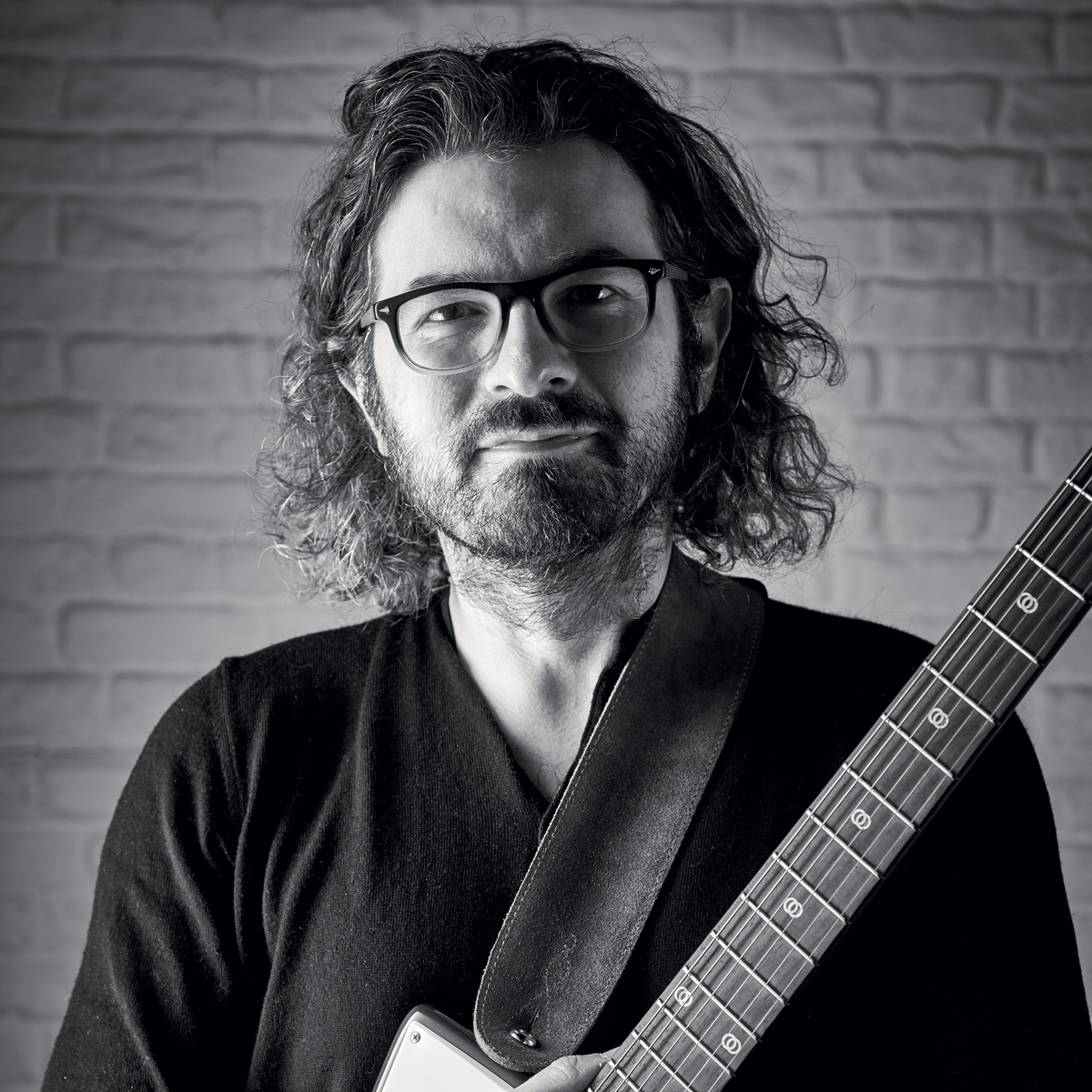




![[from left] George Harrison with his Gretsch Country Gentleman, Norman Harris of Norman's Rare Guitars holds a gold-top Les Paul, John Fogerty with his legendary 1969 Rickenbacker](https://cdn.mos.cms.futurecdn.net/TuH3nuhn9etqjdn5sy4ntW.jpg)





